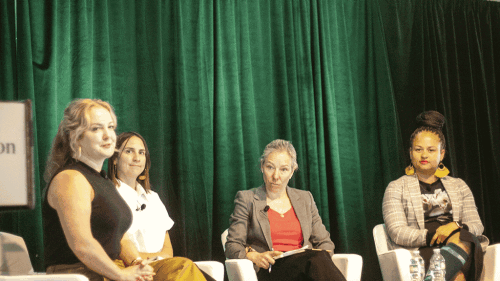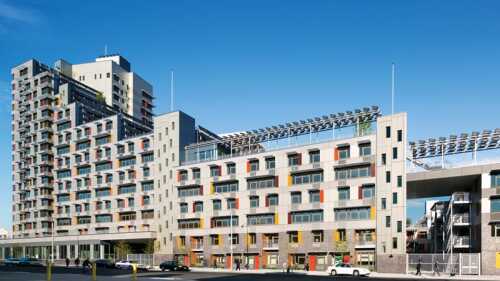The principal of Citadel Realty Advisors and author of the Ross Rant newsletter discusses the private equity markets, including current challenges and what lies ahead.
Joel Ross, principal of Citadel Realty Advisors in New York City, has closed over $3 billion of various types of financing on all types of real estate. He was the creator of the first hotel commercial mortgage–backed securities (CMBS) programs in 1993 and brought hotel financing back to Wall Street after it virtually disappeared in 1989. He is considered one of the leading experts on this type of financing, as well as all other hotel-related transactions. He is a ULI full member and a member of the Urban Development/Mixed Use Council.
What is happening in private equity at this point?
Most of the private equity firms continued to invest in new deals right into the middle of or even late 2007. Almost all of them made some bad deals because they grossly overpaid for assets in 2006 and especially in 2007, because there was too much pressure and competition to put out the money. Everybody was chasing the same deals. They were anxious to put out the money so that they could raise another fund and generate more asset management fees, which were running at 2 percent at the time. So the race was on to put out more and more money. It was the rare fund—and maybe nonexistent manager—that had the discipline to stop investing in 2006.
Most people in the private equity world believed they could make 20 percent–plus returns, and that is what they promised their investors. It became the hurdle that had to be promised to get funding, so that was what was promised. However, the only way that was possible was to leverage up to the maximum, and hence raise the risk level to the maximum as well. You had a combination of grossly overpaying for the asset and then way overleveraging, which was a recipe for what happened— an inevitable crash of values. The reality is that the assets were never worth the 2007 prices that were being paid, and the excessive risk that was taken by the excessive leverage just increased the problem.
The other issue is that 20 percent returns on assets acquired in the period after around 2003 were probably a highly unlikely goal without taking excessive risk of leverage, backing poorly qualified partners, or investing in projects in foreign countries where the fund had no real expertise and bad partners. The funds were chasing a magic goal that was never real based on fundamentals of real estate. It was all about financial engineering and the greater fool theory of I can flip it to another buyer at what will be a higher price. This only works at the start of an upturn, and then projected values have to be adjusted down to reality, which is 15 percent in many cases.
The result was a lot of the private equity firms are still sitting with a number of busted deals in various old funds whose equity is essentially wiped out. Now private equity firms are renegotiating their debt and feeding the properties, trying to keep them alive and hoping for a better day. In some cases, they are giving assets back because they are unable to get the revised loan terms they require and cannot justify infusing additional capital. It is in the interest of a fund to maintain the hope of recovery so that it does not have to declare massive losses and thereby potentially prevent the ability to raise a new fund. If it can “extend and pretend,” it lives for another day and another fund raise.
As with most borrowers, funds are trying to figure out the best way to salvage what is in the old funds. The problem they have is that they are spending a lot of time dealing with what is referred to as “legacy assets,” meaning old deals. A broken deal is far more work than making new deals, so a lot of time is being consumed on legacy assets. Simultaneously, some fund investors redeemed their money that was still not spent because it was clear they suffered serious losses, or they are waiting for their redemptions to be paid. The combination of needing capital to fix what is broken and the redemptions has left several funds short of capital to invest in new deals.
A number of the private equity firms either shut down, like Whitehall [Group LLC], or they are just trying to fix what they have, so they are really not active any longer to do new deals. The ones that survived are trying to raise new funds, but it is far tougher to get investors now. It is not clear at this time how much money is really available for new investment by private equity funds. Some have new funds, and some say they have capital, but really do not.
What about all the billions of dollars we have all heard about sitting on the sidelines just waiting for deals?
It is a mix of family offices, private equity, foreign money, REITs [real estate investment trusts], and individuals. It is very hard to tell at a number of the private equity firms how much money they really have still available for new investments, how much is reserved for remaining redemptions, and how much is reserved to fix some of the legacy assets. I am not suggesting there is no money; I am just saying for an outsider it is really impossible to know how much all these firms have that is really available for new investments.
The other thing is that because they lost so much money in the 2006 and 2007 deals, they are being a lot more careful and cautious about what they do going forward. They are not going to survive if they lose their investors’ monies again like they just lost it in the past two years. You cannot do it twice.
In your Ross Rant newsletter, you mention certain “black swan” events that could be looming on the horizon. Do you feel the private equity firms are being cautious of them as well?
I think to some extent they are, but it is more of not wanting to make another mistake. You can say yes, there are some black-swan events like the Greek crisis that could cause them to have another big loss—as opposed to what was going on before the crash, where they were running around investing in housing and other assets in Spain, Thailand, Romania, Argentina, and other places that they did not fully understand. Now they are being much more cautious about trying to pick the right deals.
The second problem is that there are hardly any deals to pick from. So what has happened is they have raised all this money to go into distressed and REO [real estate owned by the lender] purchases, but those deals do not exist in any quantity because of “extend and pretend” by lenders. Now there is all this money in the equity funds they raised, but there are no equity deals to do, so now they have become lenders trying to get equitylike returns.
The problem they are going to encounter very soon is that as the credit markets improve, the banks and securitization will begin to come back into the market. Banks are going to be making loans at 8 percent with normal lending terms, as opposed to 12 percent plus 2 points plus yield maintenance. Securitized lending on good assets will be at 6 percent. Probably over the next 18 months, the private equity firms that are making 12 percent loans today are going to find it harder and harder to put out that money at those kinds of returns. Friends of mine who are now doing those loans believe that as well.
The answer is that there is a considerable amount of money around, but a lot of it is not in the private equity world. A lot of it is in family office, REITs, high-net-worth individuals, and foreign money competing for the same deals that are being put out to auction. So what has ended up happening is that the private equity firms are bidding on loan portfolios and then getting outbid in some cases by less-sophisticated, less-professional individuals who may not fully understand all aspects of what they are bidding on. In the process, the PE [private equity] firms are wasting a lot of time and money doing due diligence on loan portfolios they are trying to buy, or they are being forced to buy and pay much higher prices than most people think is reasonable. I am concerned that the frustration of losing and the pressure to invest will once again overwhelm basic fundamental underwriting, and a new set of bad deals will get done.
It is sometimes hard to know why certain funds bid high to win loan portfolios and what their real agenda is. In certain cases, it appears they were interested in controlling a portfolio so that they can then raise a new fund by saying we won this bid and we control this portfolio of loans or assets. There is some belief that some private equity bidders on FDIC [Federal Deposit Insurance Corporation] portfolios are as interested in the asset management fees as they are in the loans they bought.
The other thing related to returns is that it seems that everybody has recognized that excessive leverage is not the way to go. Because there is now a deleveraging, there seems to be recognition that you can no longer make 20 percent IRRs [internal rates of return] in most cases, or that it is a lot harder. Therefore, the private equity firms are talking about 18 percent IRRs instead of 20 percent–plus, and in some cases less—maybe 14 percent IRRs.
There seems to be recognition that you just cannot achieve the kind of returns they had been promising and that there is not going to be this flood of deeply discounted deals with super-high returns that everyone thought were going to exist, so there does seem to be recognition of ratcheting back promised returns. It is probably a good thing, because now there is not the same drive for the high leverage needed to achieve unachievable IRRs.
Sam Zell [real estate entrepreneur, and cofounder and chairman of Equity Group Investments] has said on the funds he did in earlier years, he never really achieved a 20 percent IRR, because he would not overleverage. He thinks 18 percent is high, and the best he ever did was 17 percent IRR.
The bottom line is that there is, and will continue to be, a lot less private equity money available for at least the next several years than there had been in 2007 because of redemptions, losses, caution, and investor reluctance to give money to private equity firms. The other problem is that there is too much other money from individuals, family offices, REITs, and foreign sources that is going to offset the lesser amount of private equity money, so that at the end of the day there is still far too much money chasing too few deals.
What is the status of the funds set aside for hotel acquisitions?
There has already been a lot of money raised for hotels, and it is mostly sitting on the sidelines looking for deals that are still probably six to nine months away in terms of a large number of deals from the servicers.
What can individuals or companies seeking private equity expect, and what type of sponsor equity requirement would they be looking at?
What was happening in 2006 and 2007—where anybody breathing could get money—is gone. Unless you have a really good track record that is provable and a solid transaction that works well with moderate leverage, it is highly unlikely you are going to get money. Sponsor equity will probably be as high as 10 percent, which again makes it hard for a lot of people because they no longer have any cash. Some transactions will be done with 5 percent or less due to the lack of capital now in the hands of sponsors, given their last two years’ losses.
Any other thoughts you would like to share?
The only thing else I would say is that over time, the pressure will build to put out money, like it always does. Eventually, standards will get reduced again because that always happens. It is unclear how long the lessons of this crisis are going to remain learned. Almost surely, not long enough.




